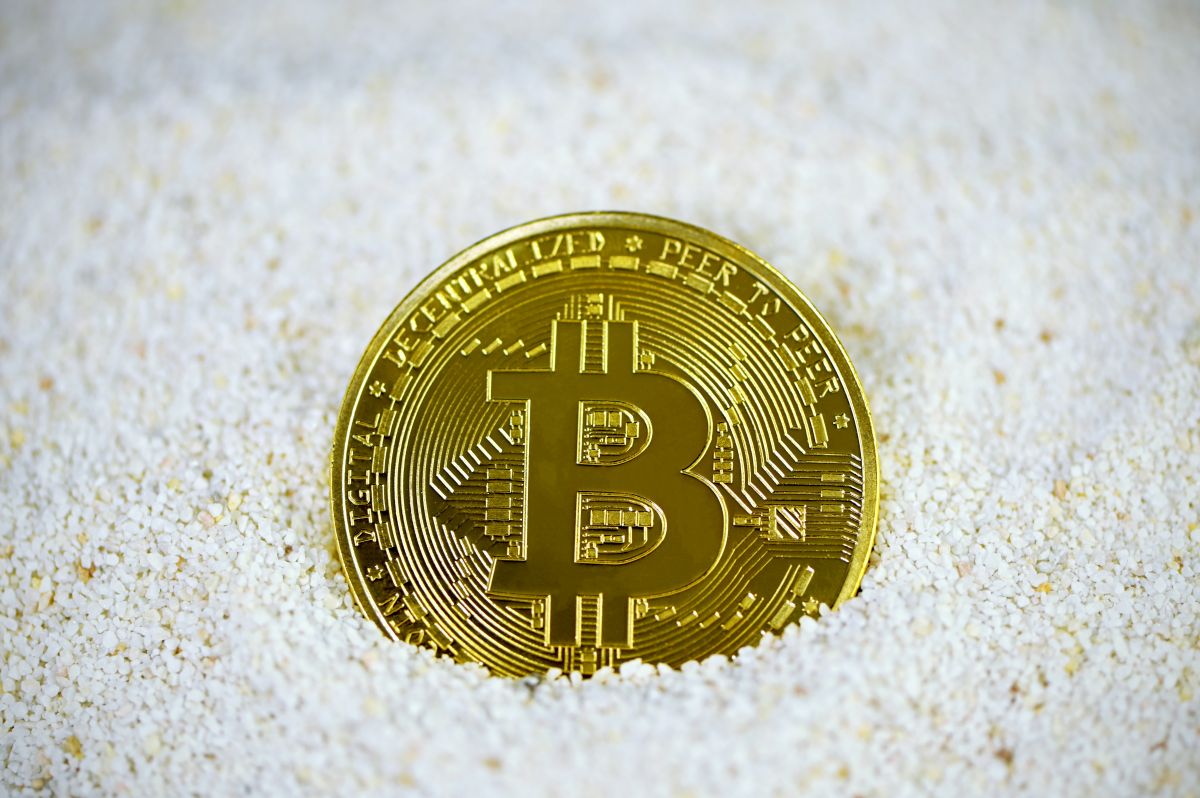Uncovering the Inevitable Clash Between Bitcoin and Inflation: An Essential Guide for 2023
In Brief
Bitcoin is a digital currency that doesn’t fall under the control of governments or central banks.
Inflation is the rate at which the prices of goods and services increase over time.
As people become interested in Bitcoin, the inflation question arises again. What is Bitcoin’s inflation rate? How does it compare to other currencies? This guide post will answer questions about Bitcoin and inflation.

- What is Inflation?
- How does inflation affect Bitcoin?
- Is inflation here to stay?
- Is inflation good or bad for an economy?
- Bitcoin and Inflation
- What role does Bitcoin play in inflation?
- Do cryptocurrencies experience inflation?
- Is Bitcoin deflationary or inflationary?
- Is Bitcoin inflation-proof?
- Why is inflation significant for crypto?
- What will happen to Bitcoin in a recession?
- FAQs
- Conclusion
In a world of ever-increasing inflation, investments in Bitcoin are becoming more attractive. While the price of Bitcoin has dropped since its all-time high in 2017, it still remains significantly higher than its original value in 2009 and is forecasted to appreciate further. As a result, many investors are turning to Bitcoin as an alternative store of value in order to protect their wealth from the detrimental effects of inflation.
In this guide, we will explore why Bitcoin is becoming an increasingly attractive investment vehicle in a world of rising inflation and discuss the clash between Bitcoin and traditional fiat money. We will provide an assessment of the current state of affairs, as well as predictions for where we might expect this relationship to go in the future. Finally, we will offer practical advice on how to best position yourself for success when investing in Bitcoin in 2023.
The first section of this guide will look at why investors are increasingly turning to Bitcoin as an inflation hedge. We will examine the characteristics of Bitcoin that make it uniquely suited to protect against the effects of inflation, as well as the limitations that prevent it from being a perfect hedge.
While these are the traditional definitions of inflation and deflation, they don’t apply to Bitcoin. That’s because Bitcoin is not subject to the whims of central banks and governments, unlike fiat currencies. So, while a country’s inflation rate might rise, the Bitcoin inflation rate could be going in the opposite direction.
What is Inflation?
Inflation is a sustained increase in the price of goods and services. The prices rise when more money is available in an economy than goods and services for sale. The currency loses purchasing power because there is too much money chasing too few goods. This situation reduces the value of a dollar so that it buys fewer things.
Inflation can happen for many reasons, but one key factor is a growing economy. As the economy expands, demand increases and businesses raise prices to match this demand. It often occurs with rising wages due to supply and demand pressures on labor markets, particularly if unemployment rates are low. When fewer people work and produce goods than people who want to buy those goods, employers are forced to raise wages to entice people to work.
Another key cause of inflation is monetary policy. Central banks and governments can lower interest rates or increase the money supply (by simply printing more currency), which can cause a rise in prices. In addition, excessive government spending or high deficits due to insufficient tax revenue can contribute significantly to inflationary pressures.
How does inflation affect Bitcoin?
Bitcoin has rapidly spread as a way to hedge against inflation. Unfortunately, it’s more complicated that that. Depending on the circumstances, inflation can have positive and negative effects on Bitcoin.
Positive effects of Inflation on Bitcoin
Inflation can be good for Bitcoin in two ways.
- Inflation hedge: People will increasingly turn to Bitcoin to preserve their purchasing power as prices go up. This demand will drive up the price of Bitcoin.
- Store of value: If people believe that inflation will erode the value of traditional investments like stocks and bonds, they may put more of their money into Bitcoin. This demand will also drive up the price of Bitcoin.
Adverse effects of Inflation on Bitcoin
Inflation can also have adverse effects on Bitcoin.
- Transaction costs: If prices rise faster than the block reward (currently 6.25 BTC per block), miners will be motivated to sell their Bitcoin as soon as they mine it to cash in on the higher prices. This can lead to higher transaction fees as miners compete for a limited pool of buyers.
- Hoarding: If people believe that inflation will erode the value of traditional investments, they may be more likely to hoard their Bitcoin than spend it. This would reduce the demand for Bitcoin and could lead to a decline in price.
Inflation is just one of many factors that can affect the price of Bitcoin. It’s important to remember that Bitcoin is a young and volatile asset, and prices can increase or decrease in response to various factors.
Is inflation here to stay?
Inflation is a fact of life. It affects any product or service, including utilities, automobiles, food, medical care, and housing. The prevalence of inflation in an economy affects individual consumers and businesses because it effectively makes money less valuable.
In short, inflation reduces a consumer’s purchasing power, makes savings less valuable, and delays retirement. Central banks around the world monitor Inflation so that they can respond effectively. The U.S. Federal Reserve, for example, has a 2% inflation target. Should inflation rates rise beyond the intended target, the system adjusts its monetary policy to bring inflation back to the desired level.
Is inflation good or bad for an economy?
Many people around the globe think that inflation is bad for an economy. After all, it effectively makes money less valuable, leading to higher prices and reduced consumer purchasing power.
However, the answer to this question will depend on who you ask. Inflation can be beneficial for some, while others may find it detrimental. In the short term, inflation can have some benefits. It encourages spending and investment, which can lead to economic growth, and it can help debtors by making their debts worth less in real terms.
In the long term, inflation can be harmful. It erodes the value of savings and investments, making it harder to plan for the future. High inflation can also lead to economic instability.
Bitcoin, being a digital asset, is not immune to the effects of inflation. As a central authority does not back Bitcoin, it is more prone to inflationary pressures. Understanding how inflation affects Bitcoin is vital for anyone who owns or is considering buying digital currency.
Bitcoin and Inflation
Inflation measures how much prices for goods and services have increased over time. It is expressed as a percentage and can hugely impact everything from the not cost of your groceries to the interest rate on your mortgage.
On the other hand, Bitcoin is a digital currency that isn’t subject to the same fluctuations as traditional currencies. It’s a stable investment, and it’s become increasingly popular in recent years.
What role does Bitcoin play in inflation?
Hailing Bitcoin as a revolutionary tool could help to fight inflation. As Bitcoin is not issued by any government or central bank, some consider it a way to fight inflation. The thinking goes that since there is a limited supply of Bitcoin, inflation will not be a problem.
However, some factors could affect this view.
- It is still the early days for Bitcoin. The adoption of Bitcoin as a means of payment is not yet, and it has yet to be an established store of value. This means that its price is still highly volatile and subject to sudden changes, making it difficult to use Bitcoin as a reliable hedge against inflation.
- Even if Bitcoin does become more widely used in the future, there is no guarantee that its price will remain stable. If demand for Bitcoin increases faster than the supply, we could see a situation where its price rises rapidly, creating inflation conditions.
- Inflation is not always a bad thing; it is often necessary for healthy economic growth. Too much inflation can be a problem, but moderate inflation rates benefit an economy.
While Bitcoin could help to fight inflation in the future, it is essential to remember that it is still a very new and experimental technology. Clarification of Its role in the battle against inflation at this stage.
Do cryptocurrencies experience inflation?
Just like regular currencies, cryptocurrencies can also be subject to inflation. However, the degree of inflation experienced by cryptocurrencies is often much higher than that of fiat currencies. This is because the supply of most cryptocurrencies can change, and new coin units creation through mining or other means.
As a result, the inflation rate of cryptocurrencies is often much higher than that of traditional fiat currencies. The leading cause of inflation in cryptocurrencies is the mining process. By mining new blocks, more units of the coin are created and enter circulation.
Is Bitcoin deflationary or inflationary?
Bitcoin is often touted as a deflationary currency, meaning its purchasing power increases over time as the supply of new bitcoins slows down. However, some believe Bitcoin is inflationary because the number of bitcoins in circulation is not finite.
The truth is that both of these claims are partially accurate. While it is true that the supply of new bitcoins is slowing down and that this could lead to increased demand and higher prices, it is also true that the number of bitcoins in circulation is not finite. There are currently about 16.5 million bitcoins in circulation, and the total supply will eventually reach 21 million.
This means that while the supply of new bitcoins decreases, the total supply is still increasing. So, while Bitcoin could become more valuable over time, it could also become less useful.
Is Bitcoin inflation-proof?
Bitcoin is a deflationary currency, meaning its supply is limited and will decrease over time. This is in contrast to fiat currencies, which are subject to inflation since Central Banks can print more money anytime.
While Bitcoin is limited and will decrease, there is no guarantee that this will always be the case. The increased supply could lead to inflation if a significant country decides to mine Bitcoin.
Additionally, suppose the price of Bitcoin was to increase dramatically. In that case, this could also lead to more people buying it to cash in on the profits, increasing the supply and potentially causing inflation. So, while Bitcoin is not currently inflationary, there is no guarantee that it will remain so in the future. When investing in Bitcoin or any other cryptocurrency, it is important to keep this in mind.
Why is inflation significant for crypto?
For crypto assets, inflation is essential. That’s because Bitcoin, the most popular cryptocurrency, is often touted as a hedge against inflation as it is a scarce asset with a limited supply. There will only ever be 21 million Bitcoin in existence. This makes it similar to gold, a store of value and hedge against inflation.
What will happen to Bitcoin in a recession?
It’s impossible to say what will happen to Bitcoin in a recession because the cryptocurrency market is still relatively new and unpredictable. However, we can make some educated guesses based on past trends.
Generally speaking, Bitcoin tends to do well in times of economic turmoil. This is because Bitcoin is a haven asset, similar to gold. When the stock market crashes and traditional investments lose value, people often turn to Bitcoin to preserve their wealth.
Of course, this doesn’t mean that Bitcoin will always rise in a recession. There are no guarantees in the cryptocurrency market, and prices could just as quickly go down as up. However, history shows that Bitcoin holds its value better than most traditional assets in economic turmoil.
FAQs
Inflation is when prices for goods and services rise. This affects the purchasing power of consumers and businesses and can delay retirement. Central banks around the world monitor Inflation so that they can respond effectively.
Bitcoin is a decentralized digital currency, without a central bank or single administrator, that can be sent from user to user on the peer-to-peer bitcoin network without intermediaries. Transactions verification is by network nodes through cryptography and recorded in a publicly distributed ledger called a blockchain.
Bitcoin may affect inflation in a few ways. As Bitcoin becomes more popular and accepted, it may replace traditional currency in some transactions. The limited supply of Bitcoin may help to keep prices stable, as there would be less currency available to bid up prices. Finally, if central banks hold Bitcoin as a reserve asset, this could help to increase the money supply and lead to higher inflation.
Traditional currency is regulated by central banks, while Bitcoin is not. Standard money is also physical, while Bitcoin is digital. Finally, the supply of conventional currency can be changed by central banks through quantitative easing or other methods, while the supply of Bitcoin is limited and fixed.
Bitcoin prices are highly volatile, so investors could lose a lot of money quickly. Additionally, there is the risk involved in Bitcoin exchanges hacking and Bitcoins getting stolen. Finally, there is the risk that governments could crack down on Bitcoin use, making it illegal.
It depends. If you are risk-averse, you may avoid investing in Bitcoin. However, if you are willing to take on some risk, you could make a lot of money if the price of Bitcoin goes up.
It is hard to predict the future of Bitcoin. Some people believe that it will continue to grow in popularity and acceptance, while others think it is a bubble that will eventually burst. Only time will tell.
Conclusion
Inflation is a significant concern for any economy, and bitcoin is no exception. The bitcoin value is affected by the overall level of prices in the market, events that seem unrelated to bitcoin at first glance. By understanding how inflation works and what factors influence it, you can make more informed decisions about when to buy or sell bitcoin.
Related articles
- Bitcoin halving: The ultimate guide
- Bitcoin payments: How to accept them in your store
- Is Bitcoin legal? A look at BTC’s regulatory environment
Disclaimer
In line with the Trust Project guidelines, please note that the information provided on this page is not intended to be and should not be interpreted as legal, tax, investment, financial, or any other form of advice. It is important to only invest what you can afford to lose and to seek independent financial advice if you have any doubts. For further information, we suggest referring to the terms and conditions as well as the help and support pages provided by the issuer or advertiser. MetaversePost is committed to accurate, unbiased reporting, but market conditions are subject to change without notice.
About The Author
Moses is an experienced freelance writer and analyst with a keen interest in how technology is disrupting the financial sector. He has written extensively on the subject of cryptocurrencies from an investment perspective, as well as from a technical standpoint. He has also been involved in trading cryptocurrencies for over two years.
More articlesMoses is an experienced freelance writer and analyst with a keen interest in how technology is disrupting the financial sector. He has written extensively on the subject of cryptocurrencies from an investment perspective, as well as from a technical standpoint. He has also been involved in trading cryptocurrencies for over two years.



















































